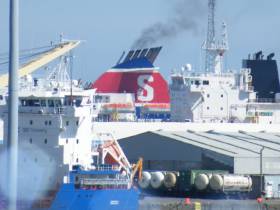Displaying items by tag: Sulphur Cap 2020
According to a new report, sharing the cost of the International Maritime Organization’s new sulphur rules (see: Irish Sea ferry operator) across the containerised supply chain could mark a new era of greener shipping transportation.
As LloydsLoadingList writes the report by Boston Consulting Group highlighted that compliance requirement from January 2020 is forecast to cost carriers between $25bn and $30bn in additional fuel costs to 2023.
“By selling environmentally friendly services effectively, lines can share these costs with customers as well as promote the ultimate objective of greener supply chains,” Boston Consulting Group said. “The entire ecosystem of value chain participants — including freight forwarders, cargo owners, and consumers — should be willing to bear their fair share of the costs.”
Lines will feel the heaviest impact from higher costs in the first year of IMO 2020 implementation, when it is expected to reach between $10bn and $12bn. Subsequent years would see smaller annual increases due to the shrinking price differential between high- and low-sulphur fuels.
But compliance costs would not be uniform across trade routes and carriers, according to Boston Consulting Group.
For more on this story click here.
Routes On Irish Sea Prepare for IMO Global Sulphur Cap 2020
Ferry operator Stena Line is currently engaging with freight customers on its Irish Sea routes to advise them of an important International Maritime Organisation (IMO) environmental regulation which will come into effect on 1st January 2020.
The goal of the Global Sulphur Cap 2020 Regulation is to significantly and progressively reduce sulphur emissions within all areas of international shipping and applies to all ship operators world-wide.
A number of regulations have been introduced over the past years aimed at making the shipping industry more environmentally friendly, such as the 2015 sulphur cap in the English Channel, North Sea and Baltic Sea. This new mandatory cap of 0.5% sulphur in ships’ fuel will now require all operators on the Irish Sea to ensure reduced emissions by switching to low sulphur fuels from 1st January 2020.
The new industry regulation will see operating costs increase outside of Stena Line’s control.
As a result, at the start of the new year all freight shipments on Stena Line’s Irish Sea routes will be subject to a higher fuel charge, in order to cover the additional costs incurred. Further details on these costs can be found on Stena Line’s freight website via this link.





























































